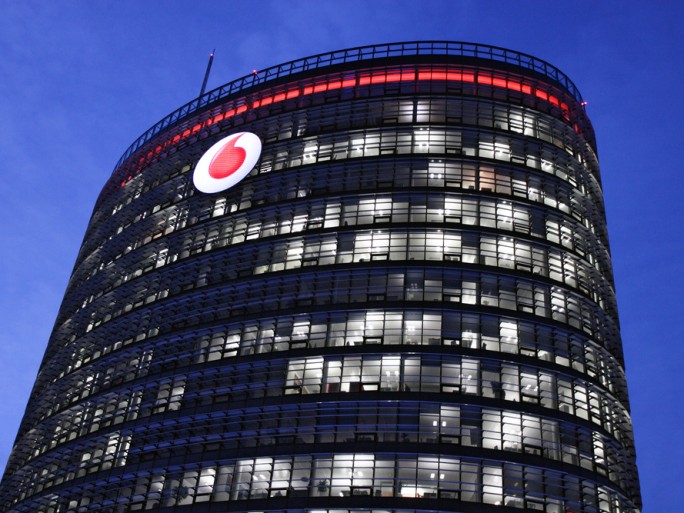Vodafone Warns £19bn ‘Project Spring’ Investment Plans Will Hamper Revenues

Vodafone CEO Vittorio Colao predicts short term pain for long term gain as investment aims to arrest sliding revenues in Europe
Vodafone has warned that its ongoing £19 billion network investment programme and ongoing difficulties in Europe will result in lower revenues in 2015, but remains adamant that its actions, coupled with strong performance in emerging markets, leave it in a good long-term position.
Revenues at the British operator fell by 1.9 percent to £43.6 billion during the 2014 financial year as service revenues slumped by 2 percent in Europe and 4.7 percent in Asia, Middle East and Pacific (AMAP).
The group got a huge income boost from the sale of its 45 percent stake in US operator Verizon Wireless and from recognition of some deferred tax assets, taking its raw profit to £59.498 billion. However, without these one-off additions, the operating profits on its business fell by 37.4 percent to £7.874 billion – a figure which still includes £3.2 billion contributed by Verizon Wireless before the stake was sold.
European writedown
 Vodafone continued to cite unfavourable conditions in Europe such as strong competition, challenging economic climates and regulatory pressures for falling service revenues, while the operator has also written off £6.6 billion off the value of its businesses in Germany, Spain, Portugal, Czech Republic and Romania.
Vodafone continued to cite unfavourable conditions in Europe such as strong competition, challenging economic climates and regulatory pressures for falling service revenues, while the operator has also written off £6.6 billion off the value of its businesses in Germany, Spain, Portugal, Czech Republic and Romania.
CEO Vittorio Colao has admitted the company has had a “mixed” performance during the past 12 months but believes there is now light at the end of the tunnel – even if there will be short term pain.
“I am confident about the future of the business given the growth prospects in data, emerging markets, enterprise and unified communications,” he says, with the company noting its progress with its fixed line strategy and 4G deployments.
Fixed line and data growth
Agreements to acquire Kabel Deutschland in Germany and Ono in Spain have been signed while Vodafone is also building fibre networks in Italy, Spain and Portugal and is the preferred bidder for a government-funded network in Ireland.
It has launched 4G services in all of its European markets except Hungary and Albania and says smartphone penetration in the continent is now 45 percent. Vodafone says it has 4.7 million 4G users, 500,000 of which are in the UK, and claims that LTE customers use twice as much data as 3G.
Cheaper handsets are also increasing data use in emerging markets, with growth reported in all of its AMAP markets except Australia and New Zealand. Indeed, in India, 7 million of its 52 subscribers are on 3G tariffs.
UK investment
 In total, the company has committed £19 billion to its ‘Project Spring’ investment plan, with £1 billion earmarked for the UK. The Newbury, Berkshire based firm recently celebrated the 30th anniversary of the Vodafone brand and has promised to open 150 new retail stores in the UK, creating 1,400 jobs.
In total, the company has committed £19 billion to its ‘Project Spring’ investment plan, with £1 billion earmarked for the UK. The Newbury, Berkshire based firm recently celebrated the 30th anniversary of the Vodafone brand and has promised to open 150 new retail stores in the UK, creating 1,400 jobs.
In addition to its ongoing 4G rollout, Vodafone’s UK 2G and 3G networks will be upgraded as part of Project Spring and Colao firmly believes this investment programme will eventually bear fruit.
“We have commenced our Project Spring two-year investment programme which will accelerate our plans to establish stronger network and service differentiation for our customers,” he says. “I expect the first signs of this to become evident later this year, with wider 4G coverage in Europe and 3G coverage in emerging markets, improved network performance and increased customer advocacy.”
Analysts say Vodafone has capitalised on the growing demand for mobile data successfully in terms of adoption but warn it must get its European business in order if it is to grow revenues.
“Unfortunately, the uptake of data fails to deliver in financial terms: revenues continue to fall for Vodafone Group, meanwhile margins have severely deteriorated,” says Ovum’s Dario Talmesio. “There is a certain paradox here: Vodafone is putting most of its commercial and investment efforts in something that is not turning revenues and that is mainly because of regulation and competitive pressure – Europe is clearly the issue that needs to be addressed.”